Poughkeepsie, NY
“I think the simplest thing to do would be to start at the beginning,” Sister Margo told us as we asked how Sprout Creek Farm in Poughkeepsie, NY, came to be.
As members of the Society of the Sacred Heart, Margo Morris and her co-founder, Sister Suzanne Rogers (Sue), already belonged to an order whose mission was educating people.
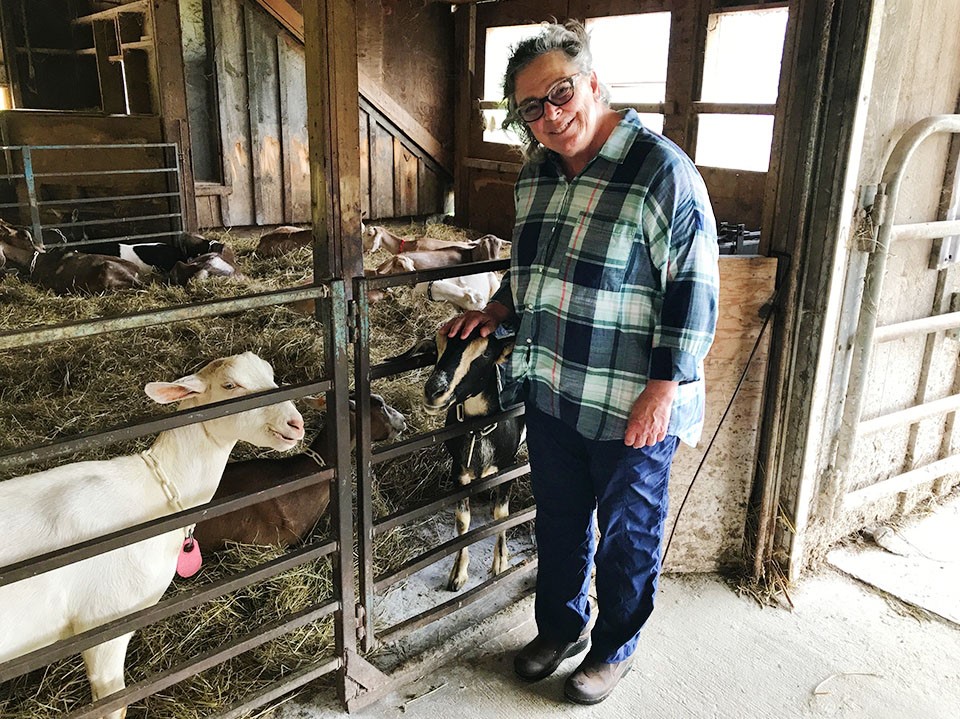 The two sisters were teachers in an independent high school in Greenwich Connecticut in the 1970’s, where they began to see societal changes that were leading to people no longer being able to communicate with one another, have social interactions, or even eat together. Many of the things that were common to everyone across cultures were starting to come apart. They witnessed children become less idealistic which was in part as a result of the political climate post-Watergate. This was also the first time they saw an extreme media explosion. Nothing like it is today, but nothing like they had seen before.
The two sisters were teachers in an independent high school in Greenwich Connecticut in the 1970’s, where they began to see societal changes that were leading to people no longer being able to communicate with one another, have social interactions, or even eat together. Many of the things that were common to everyone across cultures were starting to come apart. They witnessed children become less idealistic which was in part as a result of the political climate post-Watergate. This was also the first time they saw an extreme media explosion. Nothing like it is today, but nothing like they had seen before.
“For kids to try and sort it out, feel hopeful, and feel that high school age idealism that says ‘I can do anything I want because I am invincible’, it was like uh-oh, where’d it go?”
As the sisters watched the world transform into a consumer society they worried children would no longer be able to discover the value in things without someone else telling them what it was. Children no longer had the capacity and were no longer being taught how to discern. Margo and Sue had done leadership workshops with the children in the past that had an impact, but nothing stuck.
There was an old farm at the bottom of the school’s property that had mostly become a junk pile. The two talked the headmistress into letting them rebuild and work on the farm with the children.
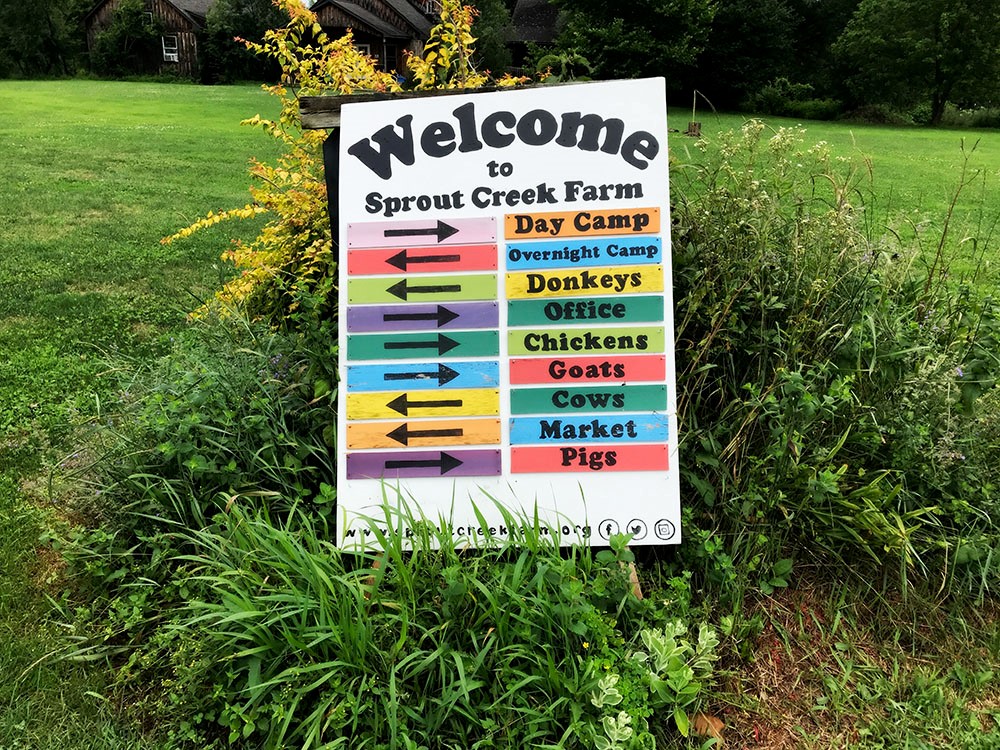 “They needed real life, that’s messy and dirty, where things start from the bottom up. Did we really know what we were talking about? No.”
“They needed real life, that’s messy and dirty, where things start from the bottom up. Did we really know what we were talking about? No.”
Nonetheless, they started a summer program with the children that ended up being incredibly successful and in ways they never imagined it would be. The farm had a couple of cows, some pigs, a few sheep, and some chickens that had been hatched in the bio lab. They didn’t buy anything, they used the resources they already had available to try and fix things. The children were filthy dirty most of the time, but they developed a completely different sense of humor, they loved it, and they felt hopeful.
The sisters’ idea was to disturb kids, to make them think. They didn’t tell them what to get out of it or what their objectives were, but they also gave them time to reflect on their own in a safe way. As a team, the children were making soap, bread, butter, and cheese, and they slowly began to feel great about themselves. Their days on the farm weren’t structured the way most summer camps traditionally are, the children used their creativity to come up with things to do.
“We were inviting people into a way of life, and we’re all in it together because we’re all learners.”
After a few years, Margo and Sue were discovered by the estate of Elise Kincaid, who previously owned the farm that is Sprout Creek Farm today. They had been looking for a nonprofit that would keep it in agriculture, use it for education and humanitarian purposes, and that already had a track record of doing so.
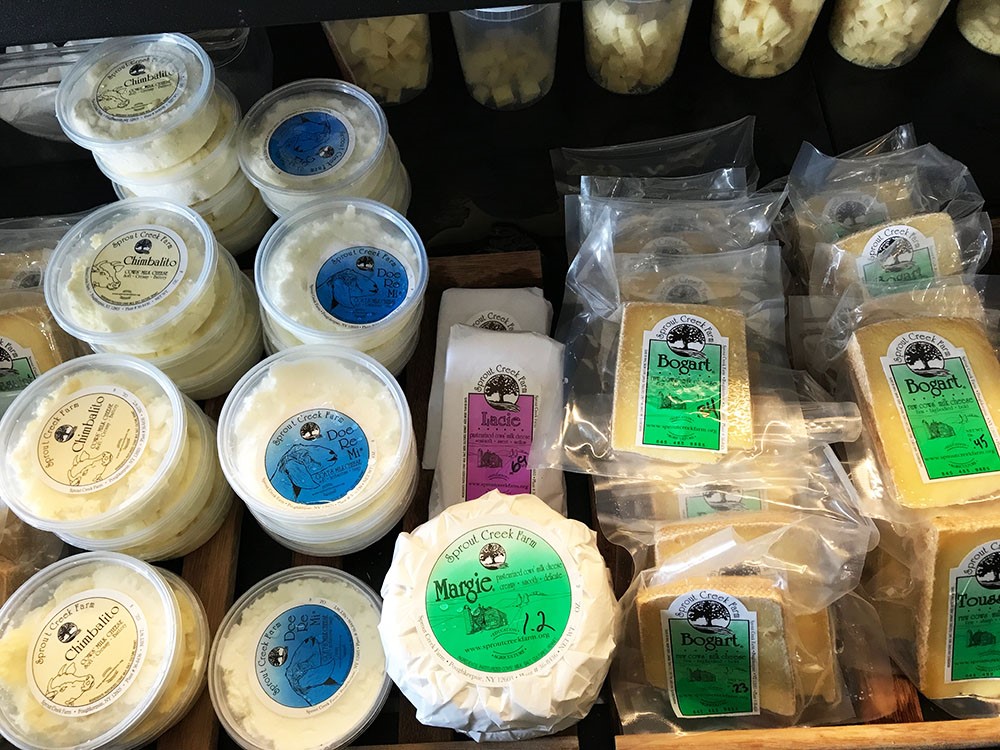 “It was quite by accident, all of the sudden we found ourselves being interviewed in a big red barn with pigeons flying around and moldy hay bales.” The farm itself was completely dilapidated, nothing like it is today.
“It was quite by accident, all of the sudden we found ourselves being interviewed in a big red barn with pigeons flying around and moldy hay bales.” The farm itself was completely dilapidated, nothing like it is today.
Margo and Sue didn’t know where they were headed but they knew they had already outgrown the little farm on the school’s property. Although the response from the children was spectacular, the school board didn’t like it. They saw a change in the children, but the sister’s unstructured program didn’t fit the prep school’s profile.
The food trend hadn’t happened yet and hardly anyone was talking about the environment except for a very few forward-thinking individuals. They were ahead of the wave, but they didn’t realize anything was coming, they were just responding to what they thought children needed.
Their clientele spectrum grew as time went on and as the need for making sure that things were healthy and wholesome began to gather strength. Over the years they were able to attract donors and developed relationships with people who really liked what they were doing. It took them quite a long time to build because they never had any money.
“There wasn’t a straight roof in the place, there wasn’t a thing that didn’t leak or need to be bulldozed.”
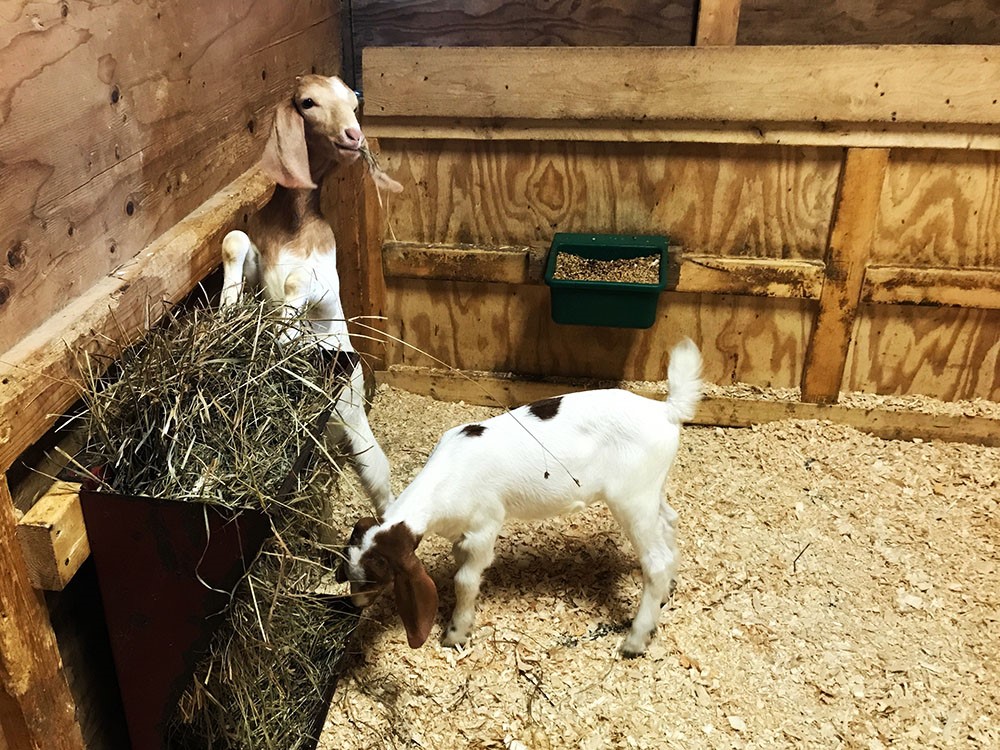 The sisters now had 200 acres of land to work with. They were looking into agribusiness and realized there was a small to midsize option for farming that had the capacity to be a lot more responsible about how things are grown and produced.
The sisters now had 200 acres of land to work with. They were looking into agribusiness and realized there was a small to midsize option for farming that had the capacity to be a lot more responsible about how things are grown and produced.
As they grew their herd numbers, they decided to make cheese because although they were only making one product, it covered an array of topics educationally. All their programs with the children would be able to be connected to the activities and up-keep of the farm.
“If you don’t sell something, you’re not a farmer.” Margo explained that if they simply had a milk truck come and take away their cows’ milk, they wouldn’t be able to teach the children as much as they could by making cheese and involving them in their process.
Sprout Creek Farm has had award-winning cheese for years because they didn’t want to make the same cheese everyone else was making, they wanted to do something different and interesting. Farmstead cheese making is difficult because they’re not using stabilizers and their animals are not eating the same thing every day. This means their milk always tastes a little bit different, yet they still have to come up with a recipe that is as consistent as possible. Similar to different types of wine, their cheese has a flavor profile specific to their location. Their soils create a specific forage that the animals then eat which is reflected in their cheeses’ taste and texture.
“I think we won an award before we even went into real production of that cheese”
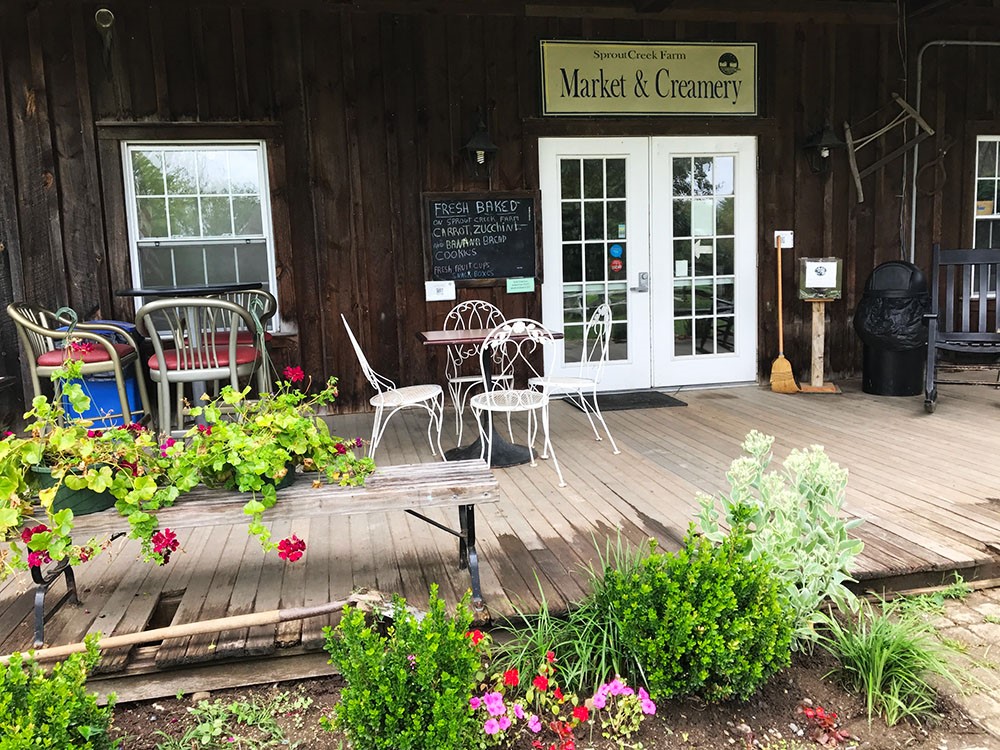 Their first award was from the American Cheese Society in the early 2000’s, it catapulted their success. After they ended up in Murray’s in New York City, they truly became recognized. As time went on, they slowly got into larger well-known retailers. Although their success seemed to initially come as a surprise, Margo had always hoped their product would become what it is today. She had high hopes for a superior product that everyone there could be proud of, especially the kids.
Their first award was from the American Cheese Society in the early 2000’s, it catapulted their success. After they ended up in Murray’s in New York City, they truly became recognized. As time went on, they slowly got into larger well-known retailers. Although their success seemed to initially come as a surprise, Margo had always hoped their product would become what it is today. She had high hopes for a superior product that everyone there could be proud of, especially the kids.
Sprout Creek makes about ten different cheeses, all of which are not always in circulation at the same time. In their best year, they have produced over 50,000 pounds of cheese. While their first long-term cheesemaker had been their bookkeeper, all of those following have been graduates from the Culinary Institute. These cheesemakers truly take great pride in making their products top notch. Their current executive director is also their Master Chef as well as a Culinary grad. He makes all the meals for the children and teaches them how to cook. Their market, which is really the heart of the farm, sells Sprout Creek’s cheeses and meats, as well as a myriad of other local Hudson Valley products such as milk, eggs, chocolate, sauces, snacks, and more.
The farm has a couple hundred animals in which they are currently milking 25 to 30 cows and 45 goats. They are open 365 days of the year to the public. Sprout Creek encourages visitors as they do not charge to visit the farm. They want people to enjoy the exposure and have the opportunity to ask questions. They don’t want people to have to pay to be educated about their food system. The goal is for the farm to be open and accessible.
They have introductory programs to the farm where children rotate learning how to milk the animals, garden, clean, and prepare food. There is a farm to table program which goes much more into depth about producing and preserving food. Other than their community service programs, their programs are for children up to age 18. Aside from the cheesemakers and the farm manager, the rest of the workers at Sprout Creek Farm are educators.
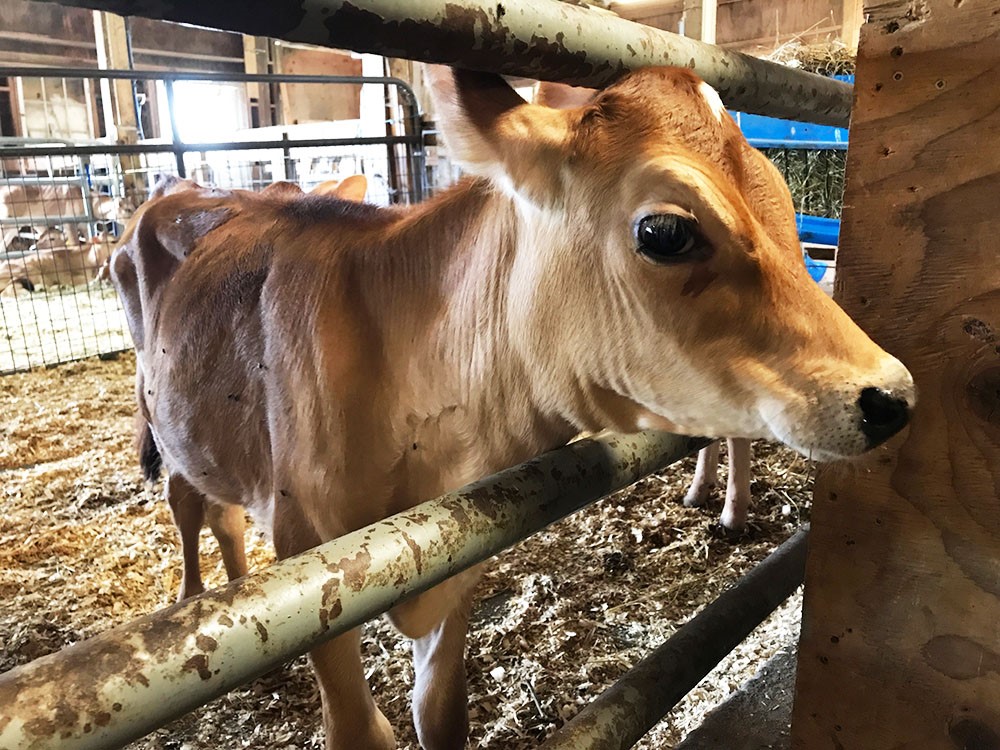 “The idea is to foster an appreciation for one life being given to sustain another. From the simplest to the most sophisticated but not with an air of sophistication… we don’t take ourselves too seriously.”
“The idea is to foster an appreciation for one life being given to sustain another. From the simplest to the most sophisticated but not with an air of sophistication… we don’t take ourselves too seriously.”
Contact: (845) 485 – 9885
Hours: Farm 10am – 5pm, Market 10am – 5pm Tuesday – Sunday
Location: 34 Lauer Rd. Poughkeepsie, NY 12603
Click here to visit Sprout Creek Farm’s website
